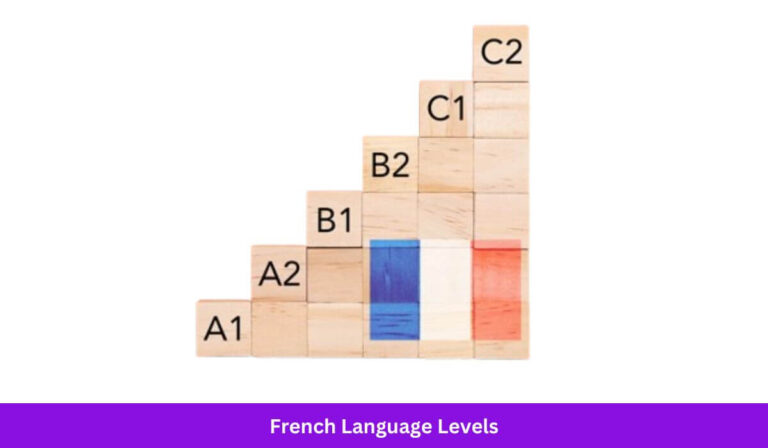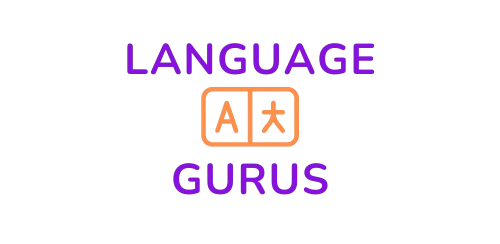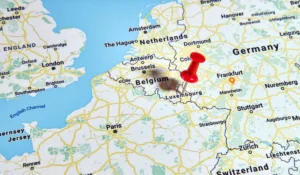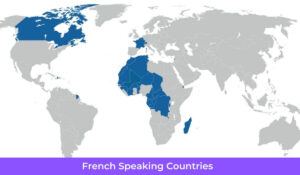Blog
Understanding French Language Levels
Table of Contents
Planning on learning French? Before you start your language learning journey, it’s important to know your current level of proficiency and which level you should complete to achieve your goal.
Do you want to learn French for academic or career advancement purposes? Are you planning to move to a French-speaking country? Or are you just planning on travelling to a French-speaking country for a few days? Considering your goal is the first step towards deciding which level of proficiency will be better for you.
French language levels are based on the Common European Framework of Reference for Languages (CEFR). These levels range from beginner to advanced and help you in tracking your progress. In this article, we’ll explore the different French language levels and identify how they align with your learning goals. Additionally, you’ll also learn how Language Gurus can help you learn French with personalized lessons, flexible class timings and affordable pricing.

Beginner Level: A1 and A2
The A1 and A2 levels primarily focus on basic communication skills.
At the A1 level, you will learn simple phrases and greetings, be able to introduce yourself, and understand basic questions. This level is great for travellers or people who are new to learning the French language.
Once you reach the A2 level, you will gain the ability to form short sentences and expressing your needs. So, you should be able to handle simple everyday conversations.
Intermediate Level: B1 and B2
B1 and B2 are intermediate French language levels and require basic understanding of the language.
At B1 level, you’ll learn to handle more complex conversations and start using French in professional situations. You should also be able to discuss topics related to work, family and hobbies.
The B2 level prepares you for advanced conversations and helps you share your opinions more clearly. You also become more fluent in both speaking and writing.
Advanced Level: C1 and C2
The advanced French language levels C1 and C2 focus on fluency.
At the C1 level, you’ll be able to speak and understand French in all contexts. This includes professional and academic settings as well. You’ll be able to express yourself fluently without much effort.
At C2 level, you should reach near-native fluency. You’ll be able to understand complex grammar and write in detail.
Benefits of Learning French with Language Gurus
Language Gurus connects you with experienced teachers and tutors for all French language levels. Our tutors and teachers offer interactive classes and personalized lessons to make your learning journey more engaging. Additionally, we offer flexible class timings and affordable pricing to ensure higher language-level classes are available for everyone.
We understand that every individual has a different learning pace, and that is why our lesson plans are tailored to fit your learning style and speed. You’ll receive personalized feedback to identify and improve quickly and efficiently. Book a free demo class today!
We aim to provide interactive lessons that keep you engaged and motivated throughout your learning journey. All our language classes are designed to be interactive, flexible and affordable.
Having said that, mastering the French language levels may seem difficult, but with the right guidance and teacher, you can achieve fluency quickly and efficiently. If you’re aiming to reach the advanced French language levels, Language Gurus is here to help.
Frequently Asked Questions (FAQs)
How many levels of French are there?
According to the Common European Framework of Reference for Languages (CEFR), there are 6 levels of French: A1 (Beginner), A2 (Elementary), B1 (Intermediate), B2 (Upper intermediate), C1 (Advanced), and C2 (Mastery).
What are the 5 levels of French language proficiency?
According to the Common European Framework of Reference for Languages (CEFR), there are 6 levels of French: A1 (Beginner), A2 (Elementary), B1 (Intermediate), B2 (Upper intermediate), C1 (Advanced), and C2 (Mastery).
Is French compulsory for PR in Canada?
No, fluency in French isn’t compulsory for Canadian PR, but proficiency in either English or French is required.



